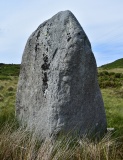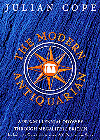Register here - as a registered user you get more features and fewer ads.
There's another argument that Phillips and Keatman use for Owain being based at Wroxeter and buried at Baschurch that I think it needs looking at also. They site the ninth-century poem, 'The Song of Llywarch the Old' as mentioning both the burial site as being Baschurch and Wroxeter as being Camelot, or the court of Owain... therefore Camelot.
I'd like to draw attention to this poem and others. What follows is, I'm afraid, a long explanation and I will repeat things I've said elsewhere. It's taken from our on-line tour about the Berth and Wroxter...
Llys Pengwern was the late 6th and early 7th. Century court of Pengwern: a kingdom that split from Powys and incorporated part of what was the Cornovii's territory after they abandoned Viriconium... or so it is generally thought. This has been assigned to several modern day places in the area. "Pengwern", which if broken down into the two Welsh words of 'pen' and 'gwern' means "head of swamp or marsh", has been suggested to be: Wroxeter (Viriconium) - which makes no sense if they were suppose to have abandoned it. Shrewsbury itself - although there's no sign of settlement there until the 9th. Century. Bury Walls to the north of Shrewsbury and Whittington near Oswestry - which does fit the bill. But for me, the most interesting suggestion is that the Berth is Llys Pengwern.
'The Song of Heledd'
Cynddylan (pronounced something like "Kunthullan") was a king/prince of Pengwern at this time (early 7th. Century AD). We know of Cynddylan through the two poems written about him: 'Marwnad Cynddylan' (The Death Song of Cynddylan) and the 'Canu Heledd' (The Song of Heledd). The latter tells of his sister Heledd's lament at the destruction of the Kingdom of Pengwern and the killing of her brother and his family. Cynddylan had fought alongside King Penda of Mercia (Middle Angles) against the invading Northumbrians (Northern Angles), particularly at the Battle of Maes Cogwy (Oswestry). Here they killed their enemy, King Oswald (after whom Oswestry was named: "Oswald's Tree" - where he was hacked to bits). However, 14 years later, after Penda had popped his Angle clogs, Oswald's angry Angle brother, Oswiu, thought it was about time to revenge his brother's death. He attacked Llys Pengwern and Cynddylan was cut down with several of his brothers. He was said to be buried at 'eglwysseu bassa' - "the churches of Bassa". This being the case, it doesn't make sense that the Berth is both places: 'Llys Pengwern' and 'eglwysseu bassa'.
It's also mentioned that Llys Pengwern (or as it is actually called in the poems, Tren or Trenn) sat in "the white town by the alder wood" and this doesn't sound much like the Berth either. 'The Song of Heledd' says...
'Defending Tren, ravaged town...
White town between Tren and Rhodwydd,'
...and a 9th. Century poem called 'from The Elergy on Cynddylan' tells us...
'The white town in the breast of the wood, this is the symbol ever -
blood on the surface of its grass.
The white town in the land, its symbol is green graves, the blood
under the feet of its men.
The white town in the valley, glad is the kite at the bloodshed of
battle; its people have perished ...'
I've done some of my own research on these translations This started when I saw another translation of this poem that said "fair town" instead of "white town". There's a big difference between these and I wondered how this occurred so I went in search of the original. The original Brythonic says...
'Y drefwenn ym bronn y coet.
ysef y hefras eiryoet.
ar wyneb y gwellt y gwaet.
Y drefwenn yn y thywyr
y hefras yglas vyuyr.
y gwaet a dan draet y gwyr.
Y drefwenn yn y dyffrynt
llawen y bydeir wrth gyuamrud kat.
y gwerin neur derynt.
Y drefwenn rwng trenn a throdwyd.
– oed gnodach ysgwyt tonn. yn dyuot o gat
nogyt ych y echwyd.
Y drefwenn rwng trenn a thraual.
– oed gnodach y gwaet ar wyneb y gwellt
noc eredic brynar.'
...and the translation for this is...
'The fair town on the slope of the woods –
this was ever its custom:
on the surface of its grass its blood.
The fair town in its lands –
Its blood under the feet of its warriors.
The fair town in its valley –
happy ?kites at the confusion of battle.
Its people have perished.
The fair town between Tren and Rhodwydd
more usual was a broken shield coming from battle
than oxen going to the noontime resting place.
The fair town between Tren and Trafal
more usual was its blood on the surface of it's grass
than ploughing fallow land'
The difference is in the translation of 'drefwenn' - or 'dref wenn' as I've also seen it written. "Dref" is similar to the modern Welsh 'tref', meaning town. That seems to makes sense. But 'wenn' has, in the first translation, been taken from the Breton Celtic language for 'white': 'wenn' or the close Welsh equivalent 'gwyn' also meaning 'white'. The latter translation is taken from the Welsh 'gwen' meaning 'fair'.
Without having the services of a ancient Celtic language specialist to call upon I went to the internet to look up 'wenn'. Amazingly, the only thing to show up was in a translation of the first British epic poem, 'Y Gododdin' (The Gododdin). I had to read through the entire poem, in Celtic then in English to find this, as the translations weren't side-by-side. (This was from a scholarly translation so I can only take it that it was someone who knew what they were doing). I got there in the end and this is what I found...
'Da y doeth adonwy at wen
Ym adawssut wenn heli bratwen'
...which translates as...
'It is well that Adonwy came to the support of Gwen;
Bradwen abandoned the foaming brine,'
Notice in the first line 'wen' is translated into a person's name, 'Gwen', which means "fair". The second line, containing 'wenn', is the only occurrence of the word in the entire poem and it doesn't mean 'white'. I finally found the Brythonic for white, which is 'gwynn'; very similar to the Welsh. I also found the Brythonic for 'town', which is indeed 'dref'. I'm unsure as to which word 'wenn' is attributed to in the second line, but if it's 'abandoned' then this makes the poem talk about the "abandoned town"!
Wherefore arte thou?
The other thing Heledd's poem got me thinking about was the town's name and the various claims for its placement. When the poem mentions Pengwern it says...
'The court of Pengwern is a raging fire'.
...and...
'Tren is called an unfortunate town.
The eagle of Pengwern calls for a long time tonight.
He feasts on the blood of warriors
Tren [was] called a splendid town'
As you can see it says Tren is the town (Trenn in the Brythonic) so this points out that the kingdon is 'Pengwern' and 'Llys Pengwern' (Court of Pengwern), is called 'Tren'.
One of the kingdom of Pengwern's borders is said to lie on the Tren and Rhodwydd rivers. Some identify the Tren as the modern day River Tern in North Shropshire, which joins the River Severn near Wroxeter. Others suggest Rhodwydd to be the River Roden to the north west of Wroxeter (although many doubt this). The poem makes it sound like the town of Trenn was on the river Tren and there is indeed a small hamlet called Tern on the river, but this could hardly be called a "town". But why no mention of what would be the most important river in the region, the Hafren or Severn, if Tren is Wroxeter as both Phillips and Keatman and Wroxeter Roman City (Viriconium) Museum claim. Whilst it makes sense to call this a "town", "white" or "abandoned" there could be a problem, however, in where Pengwern's border's where. If it is the rivers suggested above, then Wroxeter would lie outside of this area. Of course, the kingdom of Pengwern was much larger before the Angles arrived and could have included Wroxeter, but by the time Heledd 'wrote' her poem it was now outside her region and under the control of the Angles. This could also be the reason she never mentions the river Hafren (River Severn) as part of their kingdom when talking about Tren but says...
'After my brothers from the region of the Severn
and on the banks of the two Rhiws,
alas, God, that I am alive'
There's a river Rhiw joining the Severn just south of Welshpool in Powys. But is she saying that this is where she went after the destruction of Tren or that this is another indication of where Tren was? It sounds to me like the former: that she went to another part of Pengwern after the defeat. If Viriconium were Llys Pengwern then why not call it by either its known name or by Caer Guricon and why no mention of the Severn, by which Viriconium stands, anywhere else in the poem when referring to Tren or Pengwern?
Blake's Severn
I spoke to my Early Medieval expert friend, Steve Blake about all this and he told me that much confusion can be gained by trying to decipher the early writings without background knowledge. He's not kidding! He went on to say that the names of the rivers can cause problems too because: a) their names change over time; b) the scribes who wrote them down very often could change them when translating; c) in earlier times a river could be given a different name by different people at different locations of its course. So a river like the Severn could have had three names, depending on its geographical location. So one of these other rivers could still be the Severn and Tren could be Wroxeter. Steve certainly thinks it could be, although I'm still not sure that its description in the poem fits this ex Romano-British town.
We also talked about my theories on Tren and its translation. He told me that this was the same conclusion an early Welsh text expert friend of his came to: that it should read "abandoned town" and not "white town". That made me feel better.
Make your mind up!
Just when I thought things were becoming a little clearer I read this verse...
'Baschurch is his resting place tonight.
his final abode –
the support in battle, the heart of the men of Argoed.
Baschurch is? crumbling tonight –
my tongue caused it.
It is reddened; too great is my sorrow.
Baschurch is confined tonight;
for the heir of the Cyndrwynyn:
it is the land of the grave of Cynddylan Wyn.
Baschurch is ?fallow land tonight,
its clover is blood
It is reddened; too much is my emotion.
Baschurch has lost its privilege
after the slaying by English warriors
of Cynddylan and Elfan Powys.
Baschurch is destroyed tonight;
its warriors are no more.
Men know and me here.
Baschurch is glowing embers tonight
and I am sorrowful.
It is reddened; too great is my grief.'
(The translator has said 'Baschurch', but the original says 'eglwysseu bassa': 'the churches of bassa' and not all agree that this is Baschurch).
Now it sounds as if Tren and 'eglwysseu bassa' are one and the same! Or is it saying that 'eglwysseu bassa' was also destroyed as Cynddylan lay in rest there? Or is she being poetic in saying 'the churches of Bassa' is now 'destroyed' - meaning worthless - because Cynddylan is dead? It certainly seems to reads as if 'eglwysseu bassa' is a separate place because of the line...
'...the support in battle, the heart of the men of Argoed.'
This line itself throws up other questions. If we take the translation as it is, then it's saying 'eglwysseu bassa' lies within the region of the Argoed. This has been suggested to be part of the Rheged kingdom, which has been identified with a large area ranging from the north west of England and part of North Wales into what is now south west Scotland. If it's referring to its southern half, then there is an Argoed in Flintshire, northeast Wales, which puts 'eglwysseu bassa' in the region where Blake and Lloyd say it is and gives far more wait to 'the churches of Bassa' being Basingwerk.
It's all very confusing and I look forward, one day, to being able to ask Roger White, head of archaeology at Birmingham University and expert on Wroxter, about all this and Viriconium's claim to be Trenn. It does appear, to me, that some people have simply followed the findings of someone else. I hope this adds to the debate... even if it turns out to be wrong. When all's said and done, the Berth would have been in the kingdom of Pengwern and still may have been used or visited by Cynddylan or Owain, but maybe nothing more.
So...
So Phillips and Keatman are stating that these poems are proof of the Berth - or its Baschurch environs - as being the 'churches of Bassa' and that Wroxeter has to be Tren (Llys Pengwern). These poems are the only 'proof' there is and not everyone can agree on the kingdom or its court's location. Living so close to the Berth I certainly wish it to be the case but I think that more people need to explore these claims before conclussions are drawn. It should also be kept in mind that it's 'the churches of Bassa', more than one, so Baschurch could indeed have been one of them, but Basingwerk, the site of Basingwerk Abbey, another.
Since English Heritage have no digs planned for the Berth, I'm working on getting Time Team involved. Unless they discover finds beyond the current 4th-century ones, that will be the end of its claim to Avalon.
Something is not right. This message is just to keep things from messing up down the road



